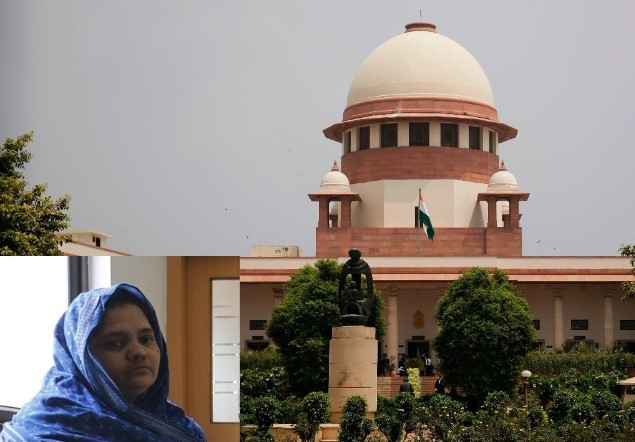The Supreme Court of India has reaffirmed its previous comments regarding the Gujarat government’s actions in the Bilkis Bano case, which emerged from the 2002 Gujarat riots. Bilkis Bano, a survivor of gang rape and the murder of several family members during the riots, had sought the court’s intervention to challenge the early release of 11 convicts sentenced to life imprisonment for their crimes, reports The Hindustan Times.
In a major setback for the Gujarat government, the Supreme Court declined to remove its remarks from the order concerning the convicts’ release. A bench of Justices B.V. Nagarathna and Ujjal Bhuyan also dismissed an application to review the petition in open court.
“Having carefully gone through the Review Petition, the order under challenge, and the papers annexed therewith, we are satisfied that there is no error apparent on the face of the record or any merit in the Review Petition, warranting reconsideration of the order impugned. The Review Petition is, accordingly, dismissed,” the bench stated.
On January 8, the Supreme Court had quashed the Gujarat government’s decision to grant remission to the 11 convicts involved in the gang rape of Bilkis Bano and the mass murder of seven of her family members during the riots.
The court’s refusal to alter its remarks emphasizes the judiciary’s commitment to justice in sensitive cases. This ruling sends a powerful message about the necessity of a fair judicial process, particularly in instances of communal violence, where victims frequently confront systemic injustices.
Bano’s case highlights broader societal issues surrounding gender-based violence and the repercussions of communal tensions in India. The ongoing legal proceedings and the Supreme Court’s engagement underscore the challenges faced by survivors in their pursuit of justice and the importance of scrutinizing governmental actions that may obstruct accountability.




